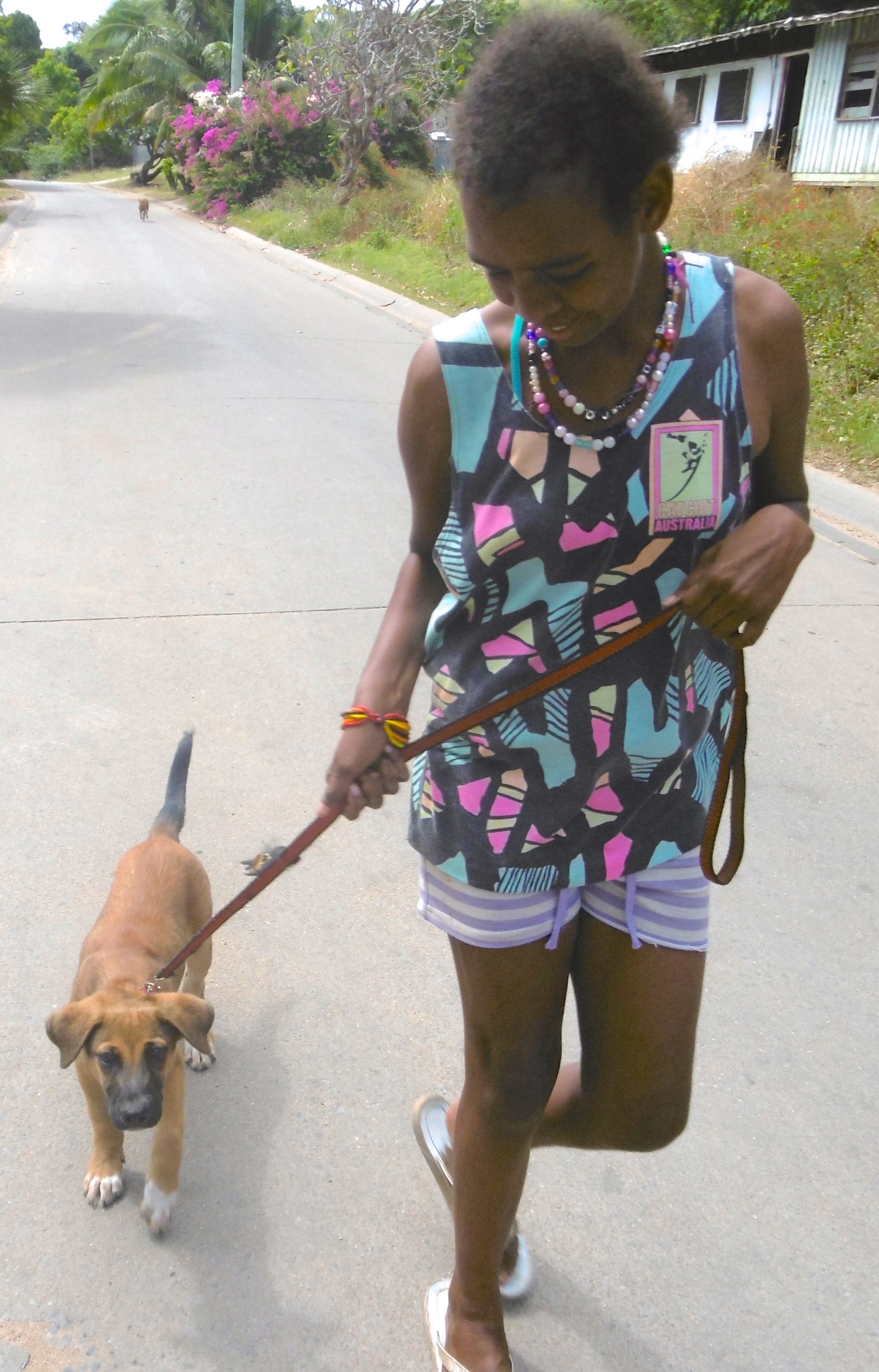
Our Animal Management programs support animal health in in our communities.
We engage vets to undertake de-sexing, euthanising, micro-chipping and medical treatments during their community visits.
The Animal Management team raises community awareness and education of animal health and wellbeing, in accordance with RSPCA guidelines and Council's local laws.
We reduce feral animal activity through monitoring and managing populations and liaising with our local TSRA rangers.
Our priority is ensuring good management of dogs and cat populations and other animals such as horses, pigs and chickens.
Pets
Pets are animals that are part of our family, to be cared for and loved. The pet owner is tresponsible for their own animal or pet and providing them with:
- food
- water
- shelter
- exercise
- regular washing (such as a swim in the ocean)
- checking daily for flea and ticks.
They also need to make sure their animal / pet is cared for by having them:
- de-wormed
- immunised
- registered
- regular vet checks
- de-sexed (after the age of 3 months)
- micro-chipped
- registered.
Your Environmental Health team can help with any information or assistance you need to care for your animals/pets.
There are local laws pet owners need to comply with, which are in the best interest of community health and safety.
Feral animals
Feral animals live in the wild, without owners. Dogs, cats and horses are the main feral animals across our region.
These animals can do serious environmental harm to our beautiful islands. They also pose health and safety risks to our communities.
If you identify any feral animal activity in and around your community or your house, please contact your Environmental Health Worker (EHW).